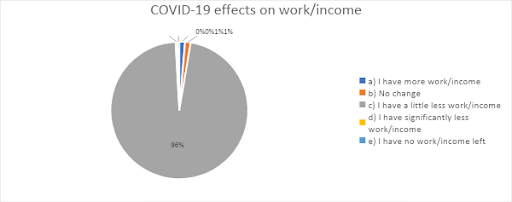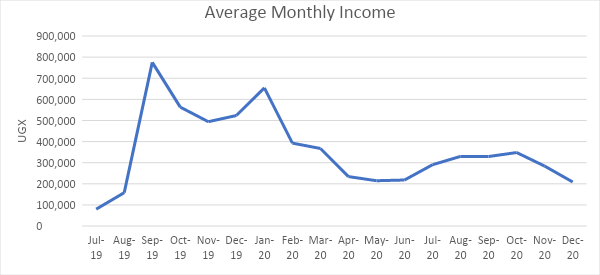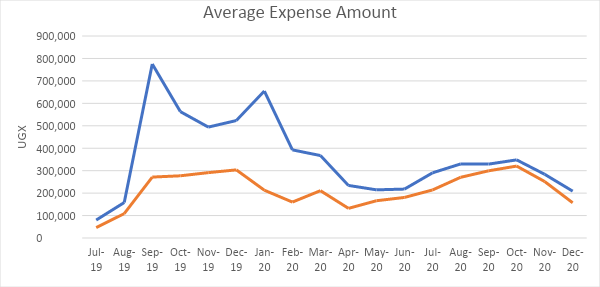Cornershops have paramount importance in operating as a gateway to communities, especially during the difficult time of the pandemic. The mitigation measures that were taken by the government to slow down COVID-19 are presumed to affect the daily operation of the retail shops. To study this effect and assess the financial data of retail businesses, L-IFT has launched a Corner-shop project in different countries including Uganda in Kiryandongo and Nakivale refugee camps. Participants in this project report their income, expenses, savings, and loans using Finbit App. In addition to these financial reports, they also respond to a small survey on COVID-19 using the App. This article focuses on income and expense data reports from 40 participants.
On the survey of COVID-19 questions, they were asked “How much has COVID-19 affected their income/work”. The result shows that the vast majority have reported having a little less work/income due to COVID-19.
This effect could be seen on the graph below where the average monthly income shows a decline after the lockdown started. By the end of August, the decline had almost been recuperated, but by the end of October, it declined again.
Comparing income and expense, their reported expenses seem to be below their income level (see the red line in the graph below). It shows that respondents on average have a positive income balance throughout the interview period. However, the positive balance was significantly higher before the COVID-19 pandemic started.
Overall, there is only a modest decline in income on average which is probably due to the fact that retail shops of essential goods were allowed to remain open during the lock-down. However, this does not reflect the challenges faced by cornershops in other areas such as price, supply, products that are hard to find…etc. which we would look into further in coming blogs.




